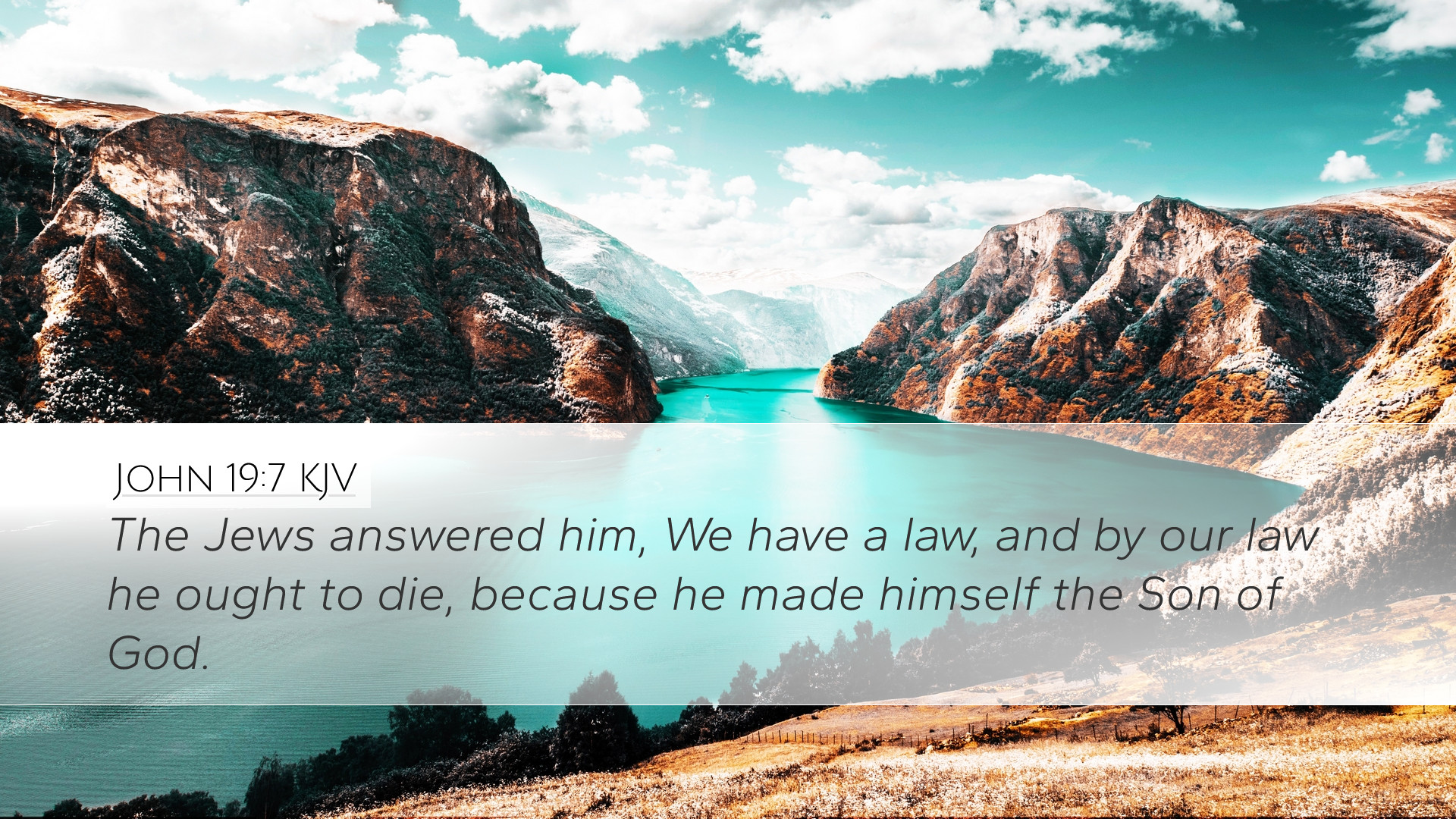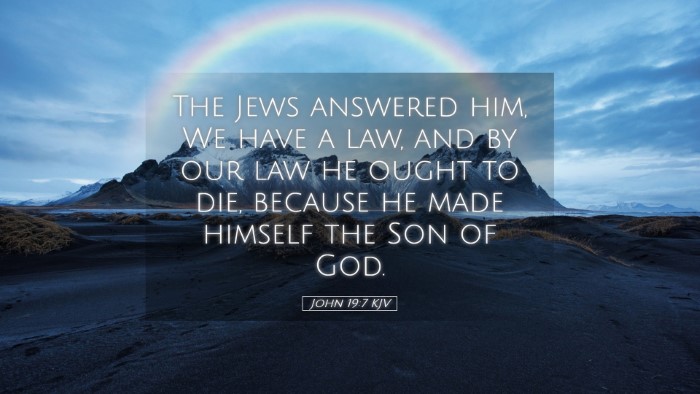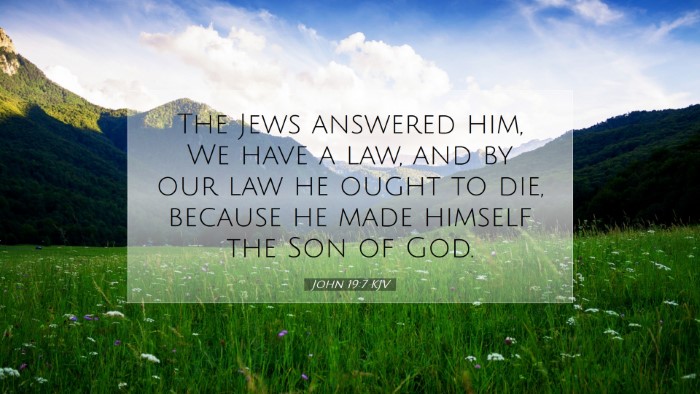Commentary on John 19:7
Bible Verse: "The Jews answered him, We have a law, and by our law he ought to die, because he made himself the Son of God." (John 19:7)
Introduction
The verse John 19:7 presents a crucial moment in the Passion narrative, reflecting both the legal and theological dimensions of the trial of Jesus before Pontius Pilate. The declaration by the Jewish leaders highlights their claim to the law and their understanding of Jesus’ identity as a usurper of divine authority. This commentary aims to unpack the profound implications of this statement as understood through the insights of various public domain commentators.
Historical Context
The context surrounding John 19:7 is pivotal. The Jewish leaders were under Roman occupation, which restricted their ability to execute punishments. Their reliance on their own law reflects a desperate attempt to maintain religious authority while seeking to leverage Roman power for their ends. Matthew Henry notes that the Jewish council had already decided on Jesus’ fate, and this moment highlights their resolve to uphold what they perceived as justice according to the mosaic law.
Analysis of the Verse
-
The Law and Its Interpretation: The reference to "our law" indicates a specific adherence to the Mosaic Law, particularly the commandment concerning blasphemy (Leviticus 24:16). The claim made by the Jewish leaders demonstrates a literal interpretation of the law which they believed Jesus violated by claiming divine sonship.
-
The Accusation of Blasphemy: Adam Clarke provides insight on the charge of blasphemy, which was indeed a grave offense in Jewish law. They interpreted Jesus’ claims as a direct affront to the singular nature of God and thus believed He deserved death as prescribed by their religious standards.
-
Ironic Justice: Albert Barnes reflects on the irony that those who claim to uphold the law were seeking to execute a man who represented the embodiment of true righteousness and divine authority. Jesus, the true Son of God, was being judged by a system that ultimately failed to recognize Him.
-
Christology in Context: The reference to Jesus as the "Son of God" is significant not only in a theological sense but also in its implications for Christology. By acknowledging His sonship, the Jewish leaders inadvertently affirm the very title that declares Jesus’ identity and mission, albeit in a distorted way.
Theological Reflections
This moment in scripture raises significant theological questions about law, mercy, and the nature of God’s justice. The Jewish leaders’ commitment to the law serves as a stark reminder of the limitations of legalism in achieving righteousness. As Henry points out, the law, while good, cannot save; it can only condemn when one falls short, which all have inevitably done before God.
Furthermore, this incident challenges readers to consider how Christian communities today interpret law and grace. The leaders’ refusal to accept the grace that Jesus offered stands in contrast to the message of the gospel that calls for mercy over sacrifice (Matthew 9:13).
Implications for Leadership and Community
For pastors and community leaders, John 19:7 serves as a cautionary tale regarding the dangers of rigid adherence to legalistic practices at the expense of love and mercy. The Jewish leaders are a stark example of how religious authority can sometimes misinterpret the mission of God’s love as revealed in Christ. To lead effectively and faithfully, leaders must embody grace and be vigilant against the pitfalls of traditionalism that can blind them to the work of God in their midst.
-
Encouragement of Grace Over Law: The events leading to Jesus' crucifixion encourage leaders to promote a culture of grace within their communities, ensuring that the focus remains on the message of redemption rather than mere rule-following.
-
Understanding Identity in Christ: This passage invites believers to reflect on their identity as children of God and how that identity influences their actions and interactions with others.
Conclusion
John 19:7 encapsulates a profound moment of tension between law and grace, between human judgment and divine truth. The Jewish leaders’ assertion reveals the heart of their misunderstanding of Jesus’ mission and identity, a misunderstanding that ultimately leads to the greatest act of love displayed on the cross. For students of theology and students of the Bible, this passage is not just a historical account; it is an invitation to dive deeper into the implications of Jesus’ identity as the Son of God and what it means for believers today. May this understanding foster hearts that embrace grace, mercy, and above all, the love of Christ.


